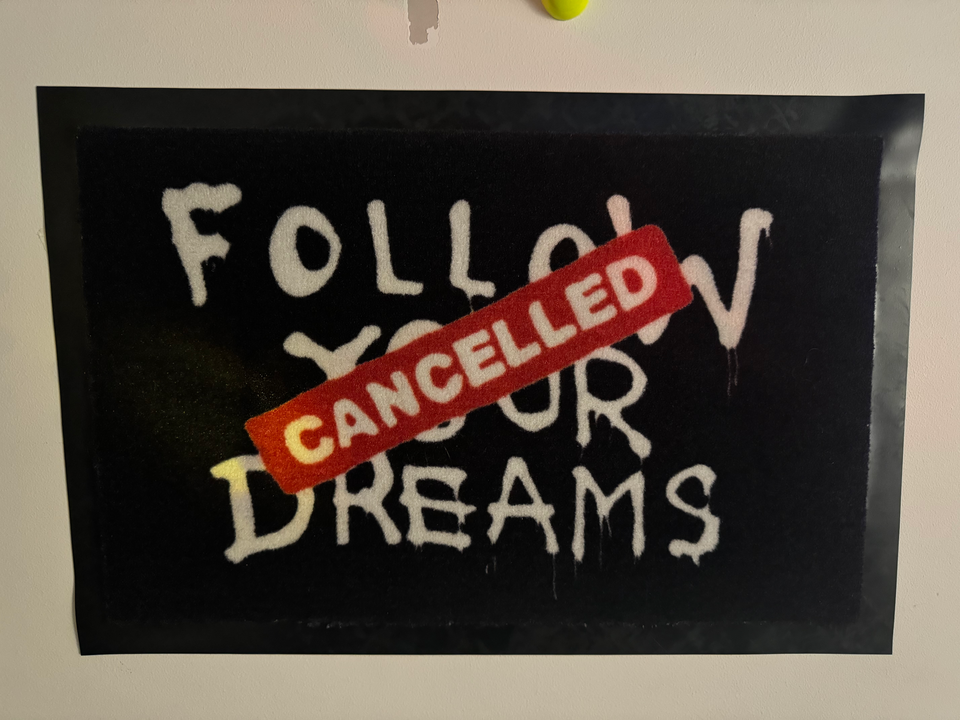Are product managers real?

TL;DR
Yes, they’re real, come on. But when are they not real? When they’re just pushing papers, chasing approvals, and not touching the actual product. It’s like calling yourself a chef because you ordered takeout for everyone.
Ever since I listened to Lenny’s podcast, How to Consistently Go Viral (simply go and listen to it, Nikita Bier is just great) I’ve been thinking a lot about the role of product managers, particularly in large organizations versus smaller, more agile startups.
About six years ago, I couldn't really come to terms with this idea that product managers could feel disconnected from the products they were supposed to manage. It seemed exaggerated, almost like a caricature. But now, after building things from scratch, I get it. The reality is clearer to me.
Once you’ve had the experience of building a product from the ground up, it changes your perspective. You learn what building really means, and it’s not just about pushing tasks around or making decisions from a distance. It’s like doing a "Do It Yourself" (DIY) project.
Or here’s another way to look at it: imagine flying drones in first-person view, where you’re wearing goggles and you’re really afraid of crashing. The actual best advice in that scenario is to build your own drone. And it's not hard at all.

Understand its parts, how it’s put together, and if something breaks, you can just fix it fast. It removes the fear of breaking something expensive or not knowing what went wrong. When you understand how things work, you don’t worry as much about things going wrong because you know how to fix them.
It’s the same with product management.
You can’t really say you own a product unless you’re involved in every part of it—how it’s built, how it looks, how it works.
It’s not just about managing processes; it’s about owning the design, the user experience, and the decisions that shape it. Otherwise, you’re just a bystander.
And that’s where the line is drawn—when you’re not truly influencing the product, can you really say you’re managing it?
In larger corporations, it’s easy to get hit with imposter syndrome. You start to doubt whether you’re really contributing to the product or if you're just playing a supporting role. For those who don’t know, imposter syndrome is that nagging feeling that you don’t deserve the role you’re in, that maybe you’re not as competent as others think. In the context of product management, it’s when you start to question whether you can really say, “I own this product,” or if you're just part of a bigger machine.
When are then "Product Managers not real"?
When you are disconnected from the product development process.
In larger tech companies, product managers often find themselves in a position where they’re no longer involved in the hands-on process of developing the product. In highly structured organizations (let's say Google), product managers tend to be more focused on administrative tasks than on the actual product creation. They’re not analyzing the data themselves or actively involved in designing features. Instead, they’re reading through reports generated by data teams and giving approvals on designs that other teams have worked on.
In this kind of setup, product managers start to resemble facilitators or project coordinators rather than true product owners. They’re not making decisions based on real insights from users or data—they’re managing meetings, making sure approvals come through from legal or privacy, and checking boxes. All of these tasks are important, no doubt, but they don’t lead to owning the product..
When your role becomes purely bureaucratic.
Another way that product managers can stop being “real” is when their role becomes heavily focused on bureaucracy. In large organizations, especially those with lots of compliance and regulatory requirements, there’s a huge amount of paperwork involved. You’re often managing approvals, tracking legal compliance, and making sure everything is by the book. Product managers can end up buried in this process, acting as go-betweens for legal, privacy, and compliance teams.
When that happens, you’re not really managing the product anymore—you’re managing a process. You’re running around like a “team secretary,” as some people have put it, making sure everyone is on the same page, but you’re not pushing the product forward in a meaningful way. In smaller companies or startups, the product manager is often the one making big decisions about what the product looks like, how it works, and what’s next. In bigger companies, sometimes the role shrinks to managing checklists and making sure processes are followed.
When you don't engage with data at all
Product managers often rely on data analysts (sometimes scientists) to deliver insights. While this makes sense in terms of dividing work, it also distances the product manager from the actual performance of the product.
Instead of digging into the data, they’re handed reports and expected to make decisions based on a summary of the numbers. This can lead to a lack of deep understanding of what’s really going on with the product and even, hitting targets.
Data is essential for any product manager to understand how their product is doing and what needs to change. When product managers are disconnected from data, they’re making decisions based on second-hand information, which is risky and often leads to months and months of work without any results.
If you are detached from design decisions
Product managers can sometimes be too far removed from design decisions. I hadn't seen a single design after over a year I was into product management at Wise.
Design is where a lot of the magic happens in consumer products—how things look and feel often defines whether a product succeeds or fails.
If product managers aren’t involved in these decisions, they lose a critical part of the process. They’re not guiding how the product will be experienced by users, which is a huge part of owning the product.
I have noticed designers take the lead in product decisions, and while that can produce some novel products, it also introduces new challenges. Product managers need to balance their creative autonomy with knowing practical constraints, like scaling the product and meeting compliance requirements.
If a product manager is too detached from the design process, then the user experience and the real "why" of the problem is simply gone.
You are not responsible for product outcomes
One of the clearest signs that a product manager isn’t “real” is when they’re not held accountable for the success or failure of the product: "Everyone's responsibility = no one's responsibility"
In a startup, I was the person who carried the responsibility for whether the product succeeds or fails. I was involved in every aspect, from ideation to launch and beyond. If I wouldn't have been in that position of accountability, it’s hard to say if I would have been really managing the product. So why wouldn't this be any different in a bigger scale?
So, are product managers real? They are, for sure. But it’s when they get stuck just handling meetings, paperwork, and approvals without shaping the product that they start to feel less real. They actually become secretaries.